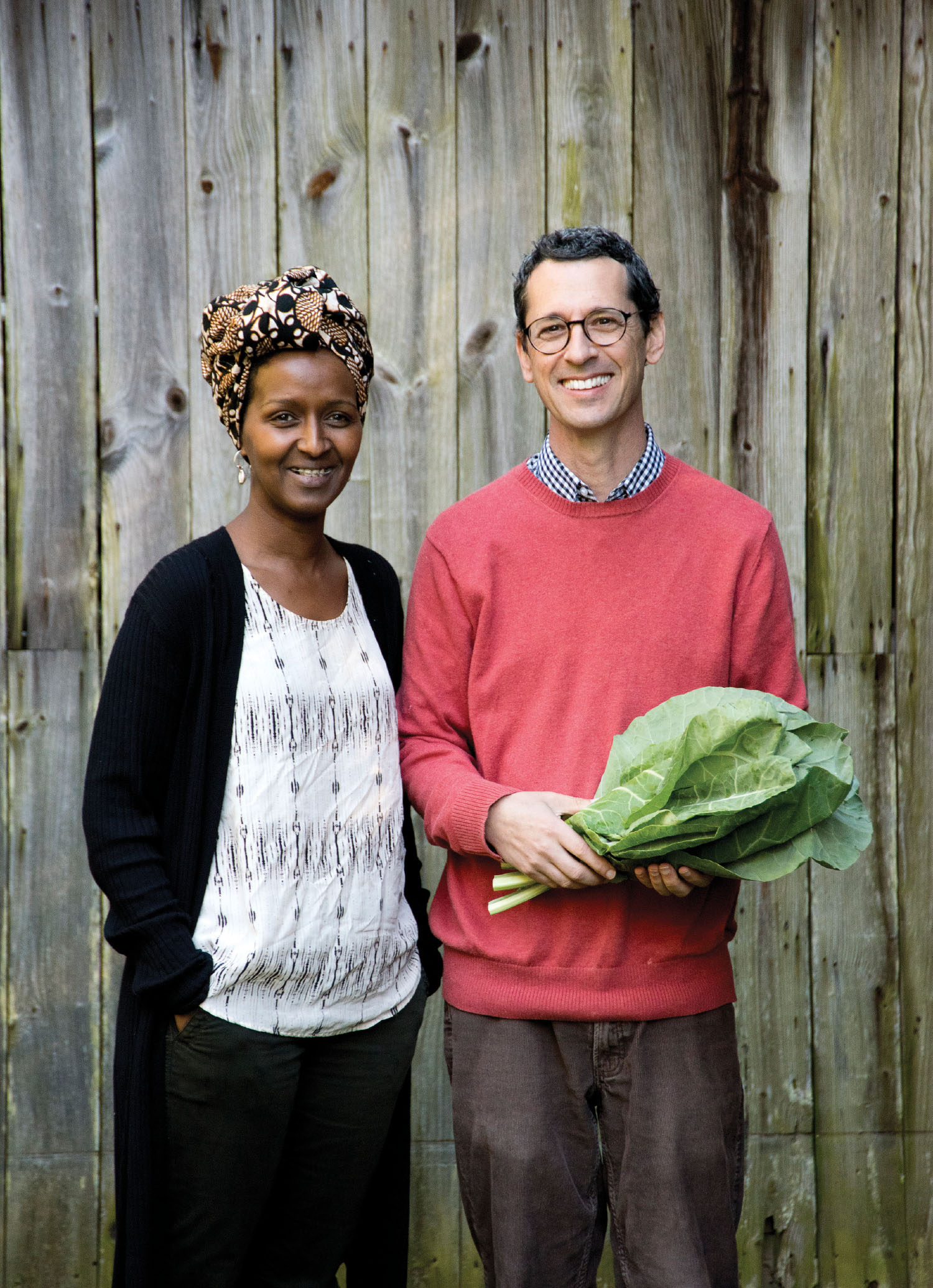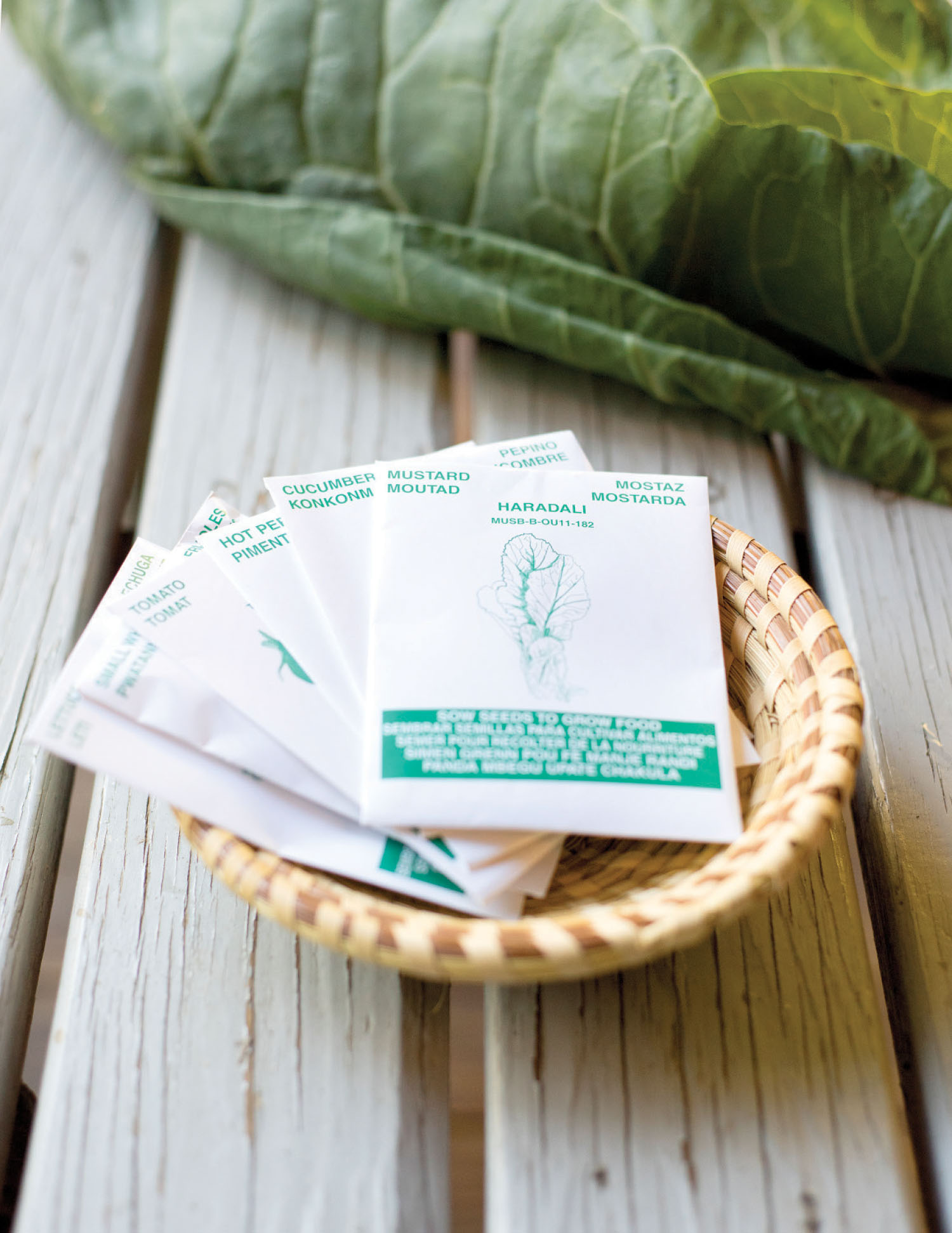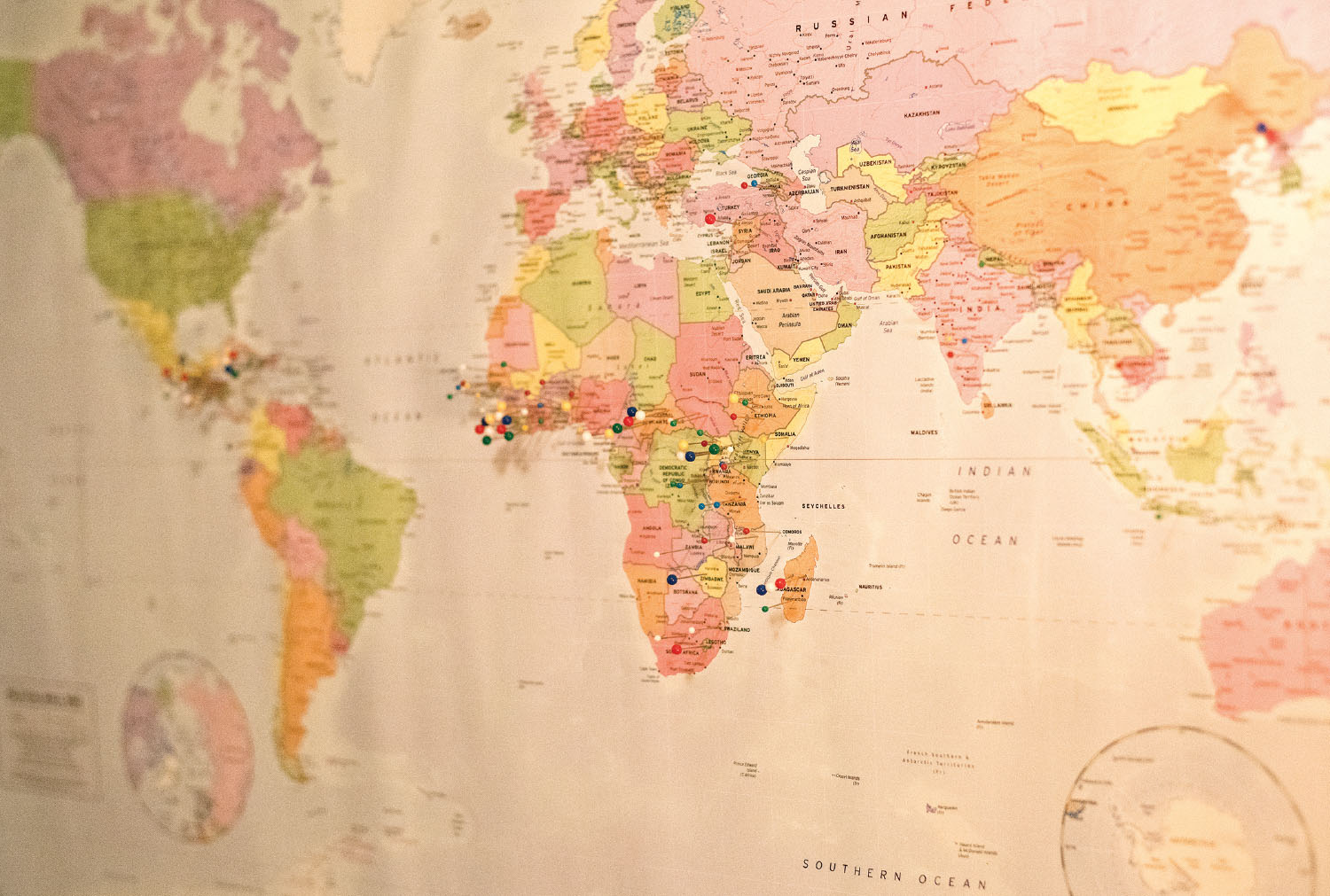
Program Director Naima Dido and CEO Peter Marks of Seed Programs International.
Photo by Morgan Ford
Though by midwinter most Appalachian gardeners are snug by their fires and spring-seed catalogs have not yet slipped into mailboxes, one local nonprofit is in the thick of planting season — in tropical communities across the globe. Founded in 1998, Seed Programs International works year-round with partner organizations in 75 countries to provide quality seed — donated by American seed companies — and related expertise to communities in the developing world, including in Uganda, Ghana, Morocco, Nigeria, Sierra Leone, Honduras, Senegal/Mali, and Belize. The company has been in North Carolina since its inception and has been based in Asheville since spring 2012.
Carolina Home + Garden spoke with CEO Peter Marks to learn about the group’s 20 years of work, and what’s new in their anniversary year.
How do your seeds get into the hands of farmers?
We either ship seed from the United States or purchase it [in the receiving country]. The seed is then used in hunger-relief projects, school gardens, women’s-empowerment projects, or crisis-response projects. It’s important to say that we never use GMO seed. Last year, we sent about 250,000 seed packets. And there’s always a partner — usually a community organization or NGO [non-governmental organization] — who’s really doing the hard work of ensuring the seed is distributed fairly and doing training in planting, nutrition, and cooking. In some cases, these partners are small churches or individuals who want to help their home countries. For instance, a UNCA professor originally from Mozambique brought seeds back when visiting his country of origin.
How do you decide what seeds to send?
Typically, people select the seeds they want. There’s an agronomist in north Haiti, for example, who loves pak choy [aka bok choi] because it grows so quickly — you can start picking in 3-5 weeks. I was in Tanzania earlier this year, and almost any time greens were served, it was Chinese cabbage.

At the same time, we are careful not to undermine local economies. We first ask if we can apply this same amount of money and buy seed from a local company. In 90 percent of settings, we’re able to ship a variety that will work better in a high-stress tropical area.
How is what you do different from direct aid?
We engage local leadership and people to use a resource they have, even when they have very few resources. We’re giving people something small that they’re turning into a big transformation. And as anyone knows who has grown a garden, you plant a few seeds and you quickly have more food than your family can eat, because gardens are generous and wonderful. People are able to sell the excess harvest and then have cash to buy proteins, and to pay the cost of keeping kids in school, purchasing medicines and clothing, and doing home repair. This is a change of standard of living for a family.
What is SPI’s ultimate goal?
We use the term “exit strategy.” That can mean seed saving — though for many foods people eat in the tropics, it’s hard to save seed [due to pests and high humidity, among other reasons]. Often, though there may not be good seed locally, there may be some in the capital city. We help get people accustomed to eating diverse nutritious food and growing these vegetables. Then they can set up supply chains within their region to create a local ecosystem of commerce.
Besides donations, are there ways people here can become involved?
We’re launching a program called Global Gardeners. Participants will receive the same packaged seed we send to partners. We’ll also connect gardeners with the stories of people growing these seeds around the world, and with recipes, cultural information, and news for partner areas. People can contact us now to be included for the 2019 growing season.
I love the idea, because for me, gardening is a hobby, yet it’s so meaningful and personally rewarding to work the soil and see the harvest. I can’t think of a gardener who won’t be moved by this.

Photo by Morgan Ford
To learn more about Seed Programs International’s work, including how to become one of the nonprofit’s first crop of Global Gardeners, visit seedprograms.org.
